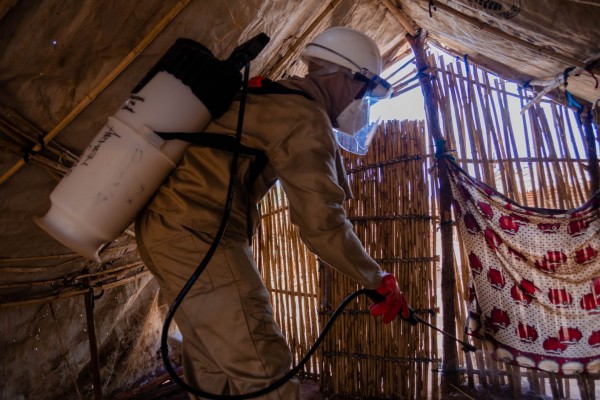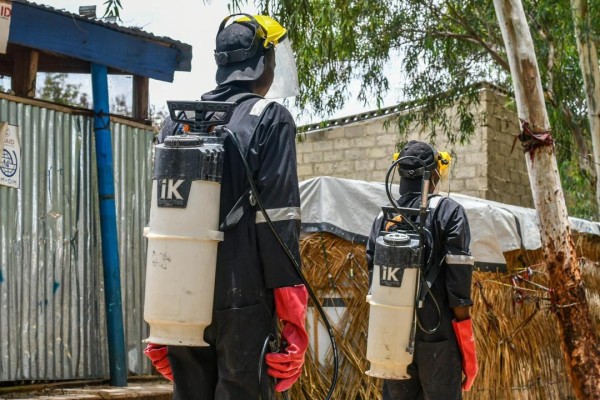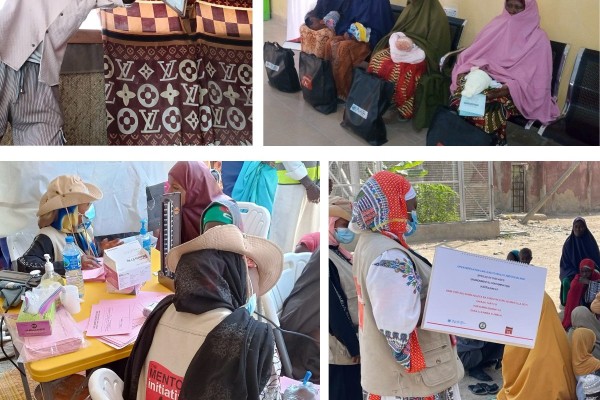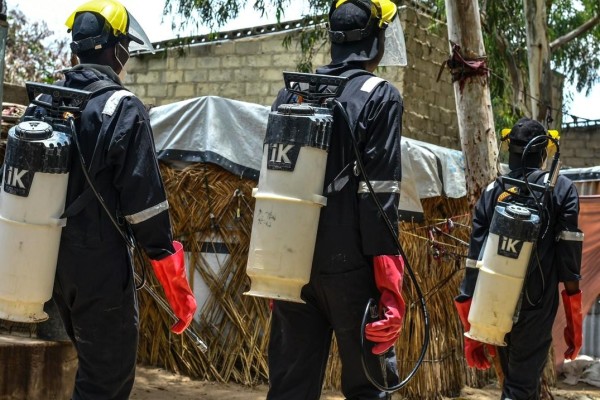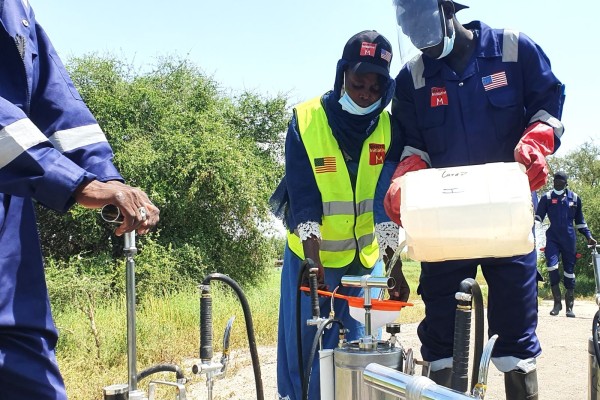Indoor residual spraying involves the targeted application of insecticides to indoor surfaces where disease-transmitting mosquitoes’ and other insects such as sandflies rest. This aims to reduce the vector population, interrupt disease transmission, and protect communities from vector-borne diseases.
Indoor residual spraying can drastically lessen the burden of vector-borne diseases, particularly in emergency situations where other vector control tools may not be as effective. For example, in Syria, we have successfully implemented indoor residual spray programmes that target diseases other than malaria, such as leishmaniasis. By engaging communities, raising awareness, and effectively implementing indoor residual spraying, cases of disease have decreased in targeted areas throughout the past decade.
In emergency contexts like South Sudan and northern Mozambique, indoor residual spraying has been key to control malaria among internally displaced persons (IDPs) and refugees. Spraying indoor resting sites of mosquitoes in temporary shelters and crowded camps with insecticide has reduced malaria transmission in both settings.
In southern Angola indoor residual spraying was used as a tool for malaria control and elimination. MENTOR supported indoor residual spraying in areas where malaria is endemic resulting in a significant decline in malaria cases and progress towards elimination goals.
The success of indoor residual spraying campaigns relies on collaborating with local communities and stakeholders. The combination of indoor residual spraying with other control measures and targeted investment in research, development and innovation, can optimise operations and improve the sustainability of vector control programmes.

